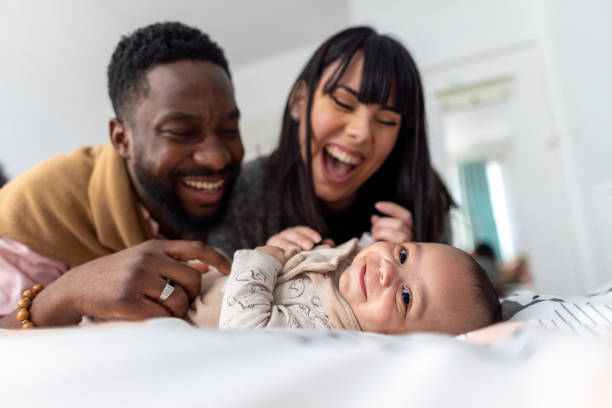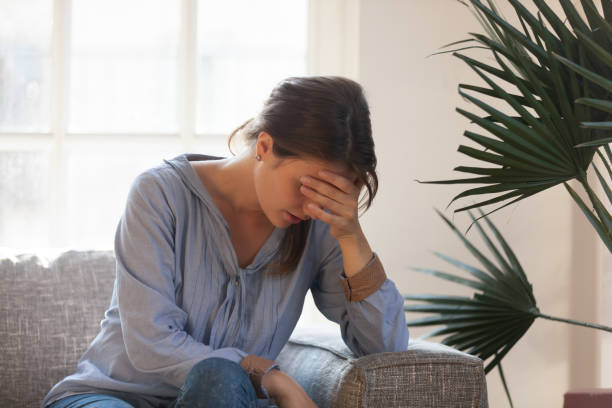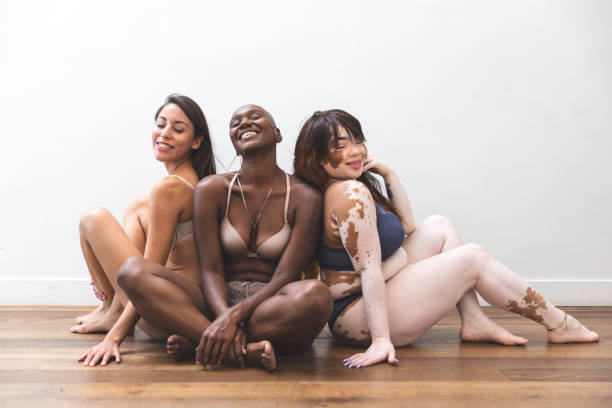
Struggling with your body image is a universal experience and simultaneously a deeply personal one. Many of us have been socialized to see our bodies as flawed and to join together to lament our “failings” as a way of bonding and supporting one another. We hear stories about how our bodies “should” look from every angle: from the media, from the people who raised us, from our peers, from medical professionals, and so on. We have been conditioned to believe that we have control over the size and shape of our bodies and that it is our obligation to exercise that control, and a failure to do so is a moral or social failure. The actual truth is that body diversity has always existed (truly, there is art showing very round bodies going back 30,000 years), and trying to make your body into something it isn’t meant to be is devastating to both your physical and mental health.
Knowing this, however, doesn’t immediately undo everything you’ve been told. As the weather gets warmer and the clothing layers begin to be shed, we can be confronted with our bodies in a way that feels challenging. Do our summer clothes from last year fit? How do we feel about them; how do we think we look? How do you feel towards your body as you go through the summer? Do you embrace the warm weather and join in on all its activities freely? Or do you constantly scrutinize your appearances, comparing yourself to unrealistic ideals? How you answer these questions will directly impact your overall well-being and enjoyment of the season.
What is Body Acceptance?
Body acceptance is the act of embracing and appreciating your body as it is, without judgment, comparison, or the need for external validation. It involves developing a positive and compassionate attitude toward your physical self
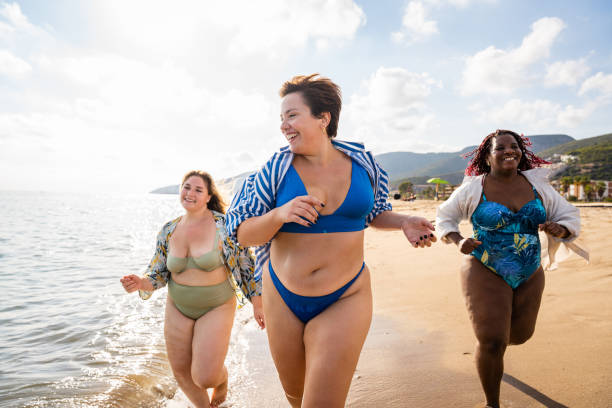
and recognizing that your worth and value aren’t based on your appearance being a certain way. Body acceptance is also known as body neutrality; it is a mindset that your body is neither good nor bad; it simply is. It is the place you live and will live for the rest of your life. It is not your value, personality, intellect, sense of humor, skills, and abilities. It is your home, and you should be able to feel comfortable in it, but that can be incredibly difficult.
As therapists in Woodland Hills, our practice would be remiss, not to mention that there are people for whom “optimal health” will never be an attainable goal. Chronic illnesses and disabilities impact people of all ages, ethnicities, and body types. You cannot always see these ailments from the outside, and the folks who navigate the world from being ill or struggling with mobility are also those who have spearheaded body positivity and body acceptance movements. Their work has come from the necessity in seeking access to public spaces, legal protections, and more.
Why Is it Hard For Us to Love Our Bodies?
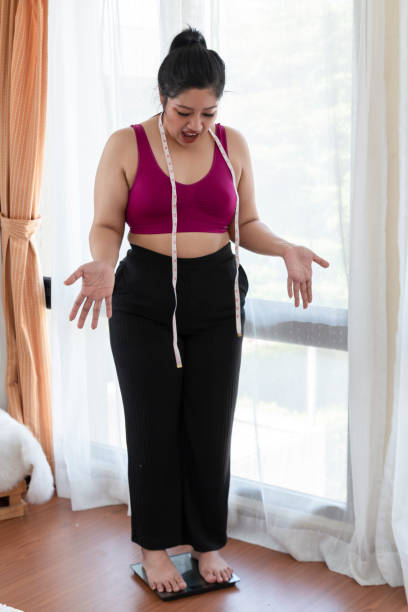
Raise your hand if you are struggling with body acceptance. If we were in a group together, I bet most of our hands would be up. While every one of us is deserving of having body acceptance, it does not come naturally. This is probably because of some lived experiences, from comments made by parents, peers, or coaches, multiplied by the constant use of social media. This can be especially impactful for people raised and socialized as female, as the value of appearance is weighted so much heavier than attributes like personality, kindness, intellect, and more. The truth is that how your body looks is likely the least interesting thing about you, but you’re told it’s what’s most important. This leads to unhealthy levels of self-scrutiny and perfectionism.
3 Ways to Have Body Acceptance This Summer
1) Practice Self-Compassion:
Cultivating self-compassion is essential for body acceptance. Treat yourself with kindness, understanding, and empathy. Instead of engaging in negative self-talk or criticizing your body, practice self-care, and positive affirmations. You might discover that self-care looks a lot like rest, especially if you’ve been overworking and undernourishing yourself for any period of time. Taking time to rest if your body is tired can feel overwhelming – you might think that if you stop working out, you’ll never start again. The truth is that adequate rest is essential for having the motivation and desire to move your body, and once you know how that feels, you are less likely to burn yourself out and/or injure yourself.
At first, you may find it very challenging to speak kindly to yourself and honor your fatigue, your hunger, and your pain. It might feel like a lot of effort like you’re putting on a big show. That’s okay! The point is to keep trying. These affirmations may be
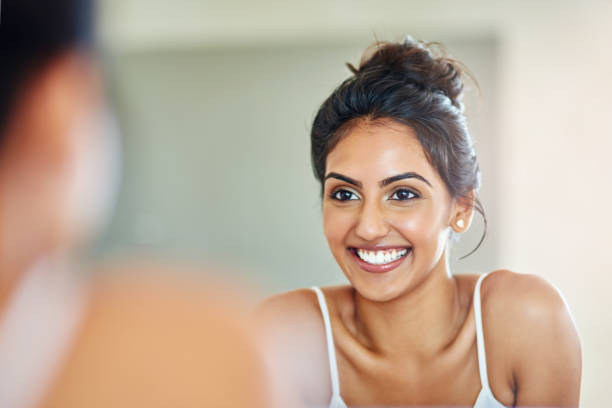
about your body itself, about the process you are going through in seeking acceptance, or both. For example, you might first work on not saying unkind things to yourself with an affirmation like, “It doesn’t serve me to talk about myself like that, so I don’t do it anymore.” Your affirmations may reference that you used to believe certain things about what your body “should” look like or what kind of life you would lead once you reached some imagined physical goal. Speak kindly to yourself about what you thought before; you didn’t know better, then.
In your quest to show yourself compassion, make sure you know what body positivity is and isn’t. Body positivity is not: never feeling any insecurities about your body; always wanting to share your body; loving everything about the way your body looks; being in denial about any physical limitations you experience. If you strive for these markers as the result of your body positivity work, you are destined to be disappointed. Instead, focus on accepting and acknowledging that sometimes you have a tough body image day, “I am struggling with my body image today, and that is natural”, or, “I’ll be extra kind to myself because I’m having a tough body image day.”
Building your self-confidence in areas that have nothing to do with how your body looks is another great way to have body acceptance this summer and year-round. The more you like about yourself that isn’t connected to your appearance, the less your appearance will matter to you. Self-confidence is the key to overcoming most challenges, and with good reason: self-confidence doesn’t teach you that you’ll never stumble. It teaches you that you will survive. You will bounce back. You will be able to try again. This knowledge creates space to try new things, to be vulnerable, to explore and accept who you are.
2) Surround Yourself with Body-Positive Influences:

Surrounding yourself with body-positive influences can greatly impact your perception of yourself. Seek out social media accounts, blogs, or communities that promote body acceptance, diversity, and inclusivity. Engage with content that uplifts and inspires you, showcasing the beauty of all body types. If you find that you aren’t able to let go of the inspiration that causes you distress, you may want to speak to a body image therapist about it.
What we see a lot in therapy for young adults is the detrimental impact of negative messaging. It can be very difficult to overcome when that comes from the people you love and trust most. This could be someone whose opinion means a lot to you and someone who, for better or for worse, feels comfortable being brutally honest with you. Or perhaps they don’t comment about your body but their own; people can speak without thinking when they are in close and intimate quarters. Yes, listening to others talk about (and criticize) their bodies has been proven to have a negative effect on the body satisfaction of others, especially when adults do so around children. If your caregiver ever dieted in front of you, you absorbed the idea that food restriction was a normal and necessary part of life.
Set boundaries with people who talk about trying to change the appearance of their bodies. You get to determine how much you feel comfortable sharing. From asking casually for a change of subject to advising someone that they are triggering a deep trauma, it is your call how you choose to address your boundaries. You may find that people around you resist your request; they might not be ready to deal with their own body image issues. Don’t take it personally; stick to what is healthiest for you. If you need to take breaks from certain people for a while, do so with kindness and compassion, for them and for yourself.
When it comes to social media and media in general, it can be difficult to avoid triggering imagery. This is why intentionally seeking out safe, body-neutral spaces online can be so beneficial. Accounts that show a lot of before-and-after weight loss imagery, post a lot of the same body type, and/or use a lot of editing can incite feelings of unworthiness and depression. The good news is that there are a ton of people online who are posting their unedited bodies and who are addressing body positivity. Look for Health At Every Size (HAES)-aligned folks, including therapists, nutritionists, dietitians, personal trainers, and more. Just because you are not pursuing changing the look of your body doesn’t mean you don’t have the resources for keeping it strong and nourished!
3) Focus on Health and Well-Being:
Instead of fixating on achieving a specific body shape or size, prioritize engaging in activities that make you feel good and support your physical and mental well-being. This can include regular exercise that you enjoy, nourishing your body with
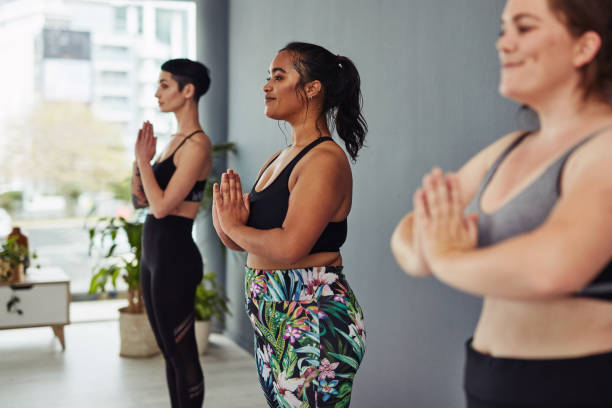
balanced meals, getting enough sleep, and practicing self-care.
Shift your focus from external appearance to overall health and well-being. Many of the healthier behaviors at our disposal have been co-opted by a culture obsessed with perfection. When you think about exercise, you may view it from the perspective of trying to “earn” your food or “make up for” something you ate. This is not a happy and healthy relationship to have with moving your body. Exercise is good for decompressing, blowing off steam, staying strong, working the heart and lungs, and remaining flexible. When you do it right, you feel good after.
We cannot address body image without addressing our relationship with food. Most people have or have had unhealthy feelings about food at some point, whether they were limiting what they consumed, how much they consumed, or when they consumed it. The fact of the matter is that we are meant to eat food and much more of it than we have been told. Our bodies are born sensing hunger and fullness; it is through external sources like specific diets that we disconnect from those natural cues. Setting aside dietary restrictions like allergies and intolerances, your relationship with food should come from a place of allowing yourself to eat it. Like exercise, the idea of eating whole foods and drinking enough water is one that is solid advice often taken too far in the name of weight loss. When you listen to your body, you will often crave whole foods because they contain nutrition that makes your body feel good! Yes, you’ll still enjoy the delicious foods; they often meet emotional needs such as socialization and comfort. You have permission to eat foods that meet an emotional need sometimes – culturally, the sharing of time over a meal has been a source of happiness for people for thousands of years!
Untying the idea of exercise and choosing nutrient-rich foods from the dieting mindset can be really tricky. A Body-Positive therapist can walk you through the process of transitioning your mindset from measuring success on a scale or by the size of your clothes to how you feel in your body, strength and/or flexibility goals, how well you’re sleeping, and so much more. When you focus on healthy habits, your body size and shape might not change or change how you’ve been told it “should,” but you can experience many other improvements along the way.
As an anxiety therapist in Woodland Hills, I see a lot of anxiety manifest as perfectionism. This need to control the outcome and to excel at every turn is the perfect environment for body image issues to manifest into dangerous behaviors and disorders. If you are worried that your relationship with food and your body is connected to a deeper need for belonging, love, safety, control, acceptance, or success, you are likely correct. Many people make their bodies a project when they feel they have no say over how other aspects of their lives are going. It is through healing trauma, letting go of perfectionism, and building self-confidence that you will begin to feel liberated from body-image struggles. It is never too soon or too late to begin to work on being positive about the body you live in!
Best Anxiety Therapy in Los Angeles Is Here!
Yes, we said it 😉 We are confident that your team of therapists specializing in CBT, Mindfulness, and Exposure therapy along with their compassionate and friendly approach is the best therapy here in Los Angeles to treat anxiety and related issues!
Because therapy is more than just talking! Therapy is about exploring, processing, and uncovering things. Therapy is about taking action so you can decide for yourself what will and will not work for you!
Contact us today for your complimentary 20-minute phone consultation with our Client Care Coordinator.

